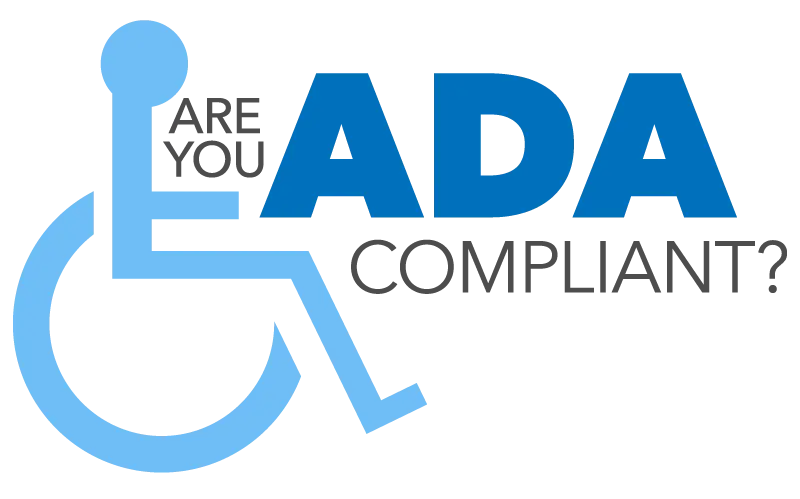
In today’s world, creating accessible spaces for everyone is more important than ever. One vital aspect of achieving this is through ADA compliance inspections. In Houston, many businesses and facilities often overlook the significance of these inspections, which can lead to serious consequences. In this blog, we will explore what ADA compliance inspections entail, their importance, and how they can positively impact both businesses and the community.
What is ADA Compliance?
The Americans with Disabilities Act (ADA) is a civil rights law that prohibits discrimination based on disability. ADA compliance means adhering to the guidelines set forth to ensure that all physical spaces are accessible to people with disabilities. From parking spaces to building entrances, ADA regulations cover a wide range of features.
At its core, ADA compliance is about equality and dignity. It’s not merely a set of rules but a commitment to fostering an environment where every individual, regardless of their physical capabilities, can thrive. Whether it’s a storefront, a restaurant, or a public park, every aspect must be considered to guarantee accessibility.
Additionally, ADA compliance extends beyond physical barriers; it also includes effective communication methods. This means providing materials in accessible formats and ensuring that employees are trained to assist individuals who may require additional support. By embracing this comprehensive approach, businesses can better serve their communities.
The Importance of ADA Compliance Inspections
Conducting ADA compliance inspections is essential for identifying barriers that may prevent individuals with disabilities from accessing your facility. These inspections can help organizations avoid fines, lawsuits, and negative publicity while fostering inclusivity.
Furthermore, regular inspections act as a proactive measure to ensure ongoing compliance. Compliance is not a one-time achievement; it requires continuous assessment and adaptation. By prioritizing these inspections, businesses can stay ahead of potential legal pitfalls while demonstrating their commitment to accessibility.
Engaging in ADA compliance inspections can also cultivate a positive reputation in the community. Customers are increasingly seeking businesses that prioritize inclusivity, and demonstrating this commitment can lead to improved customer loyalty. Remember, a business that welcomes everyone sends a powerful message of community engagement.
Finally, conducting these inspections helps to create a safer environment for all. When accessibility issues are addressed, it not only benefits those with disabilities but can also improve the overall safety and comfort of the premises for everyone.
Common Areas of Non-Compliance in Houston
In Houston, businesses often encounter common issues such as inadequate parking spaces, inaccessible restrooms, and improper signage. Understanding these frequent pitfalls can guide businesses in making necessary adjustments to their facilities.
For instance, accessible parking spaces are often misunderstood. The required dimensions and signage are crucial, yet many businesses fall short. When parking is not sufficiently designated, it creates a barrier that directly hinders individuals with mobility challenges from accessing the entry points of your establishment.
Another common area of non-compliance is restroom facilities. It’s crucial to ensure that restrooms are not only marked correctly but also equipped with necessary features, such as grab bars, accessible sinks, and proper door widths. Without attention to these details, businesses can unintentionally alienate a significant segment of their clientele.
Lastly, inadequate signage can be overlooked but is vital. Clear, accessible signage helps direct individuals efficiently throughout a facility. Color contrasts, font size, and braille options are just a few aspects that can enhance navigability for all visitors.
Steps to Conduct an ADA Compliance Inspection
Performing a thorough ADA compliance inspection involves several steps. This includes assessing the property layout, reviewing current policies, and consulting with experts in accessibility. A comprehensive inspection can reveal areas needing improvement and set the stage for an inclusive environment.
The first step is to conduct a detailed walkthrough of your facility. As you examine every room, entrance, and exit point, ask yourself if each area is fully accessible. Consider aspects like door widths, aisle spaces, and any obstacles that could impede movement for someone using a wheelchair or with other mobility aids.
Once the walkthrough is complete, the next step is documentation. It’s beneficial to take notes and photographs of areas that may need modification. This documentation serves as a useful reference when discussing necessary changes with stakeholders and planning your next steps.
Engaging with professionals is crucial. Consulting with ADA compliance experts can provide insights that you may not have considered. They can offer recommendations based on their expertise to help prioritize the adjustments your business needs.
Benefits of Ensuring ADA Compliance
Ensuring ADA compliance not only benefits individuals with disabilities but also enhances a business’s reputation. A compliant facility can attract a broader customer base, improve employee morale, and contribute to a positive public image.
For businesses, being ADA compliant is more than a legal consideration; it’s also a strategic business decision. An inclusive environment where all individuals feel welcome can result in increased customer loyalty, as customers appreciate and support businesses that prioritize equality.
Moreover, fostering a compliant atmosphere can have a positive ripple effect on employee dynamics. When employees see their employer taking steps to create an inclusive environment, they feel valued and proud to be part of an organization that shares their values.
Lastly, compassion and inclusivity can go hand in hand with profitability. Companies known for their commitment to accessibility often enjoy favorable public perception, leading to enhanced business opportunities.
Final Thoughts on ADA Compliance
In conclusion, ADA compliance inspections are crucial for ensuring that all individuals have equal access to public spaces. By prioritizing these inspections, businesses in Houston can foster a more inclusive environment, avoid potential legal issues, and enhance their reputation within the community. Understanding and implementing ADA guidelines not only benefits your organization but also promotes a culture of acceptance and accessibility.

